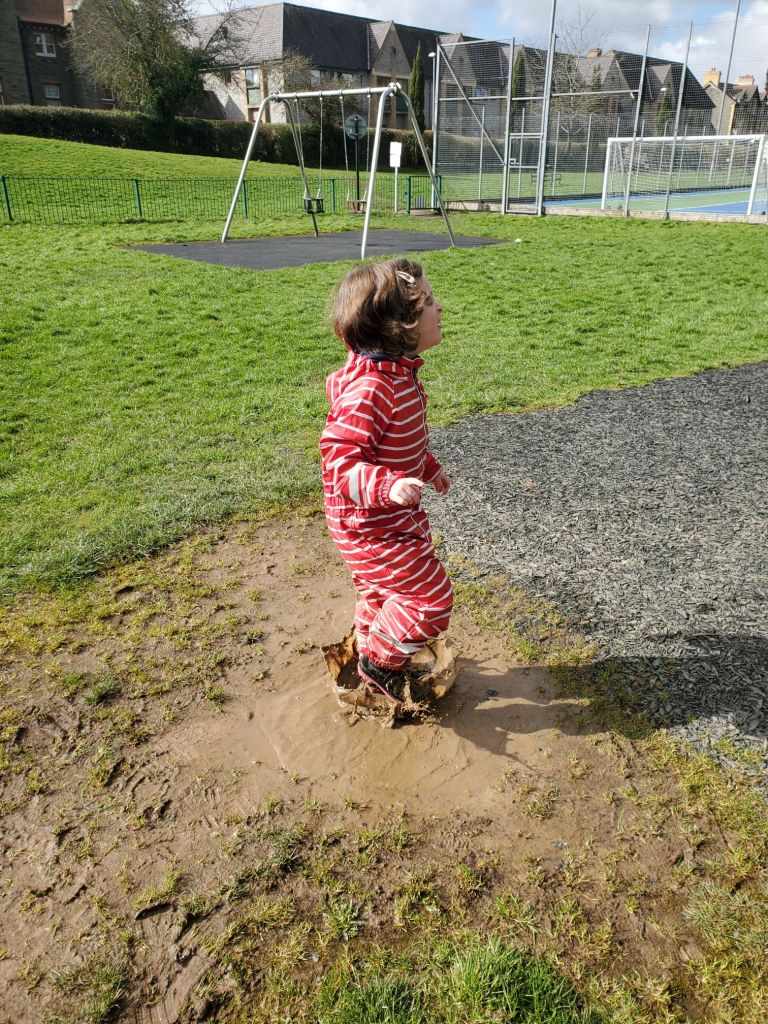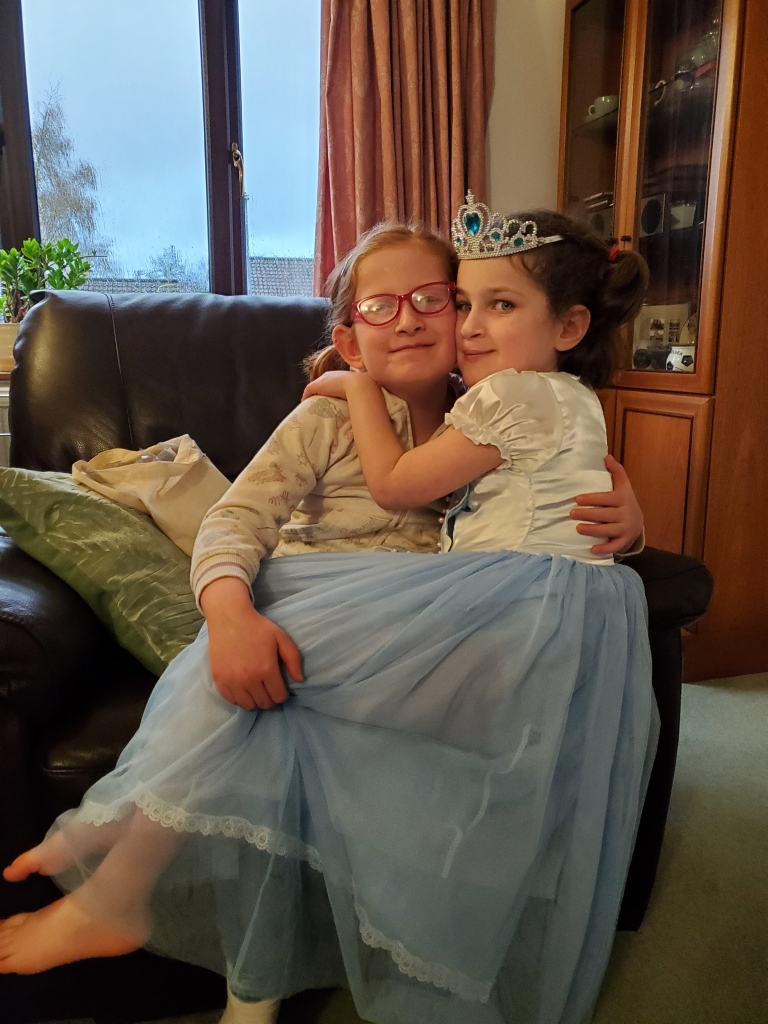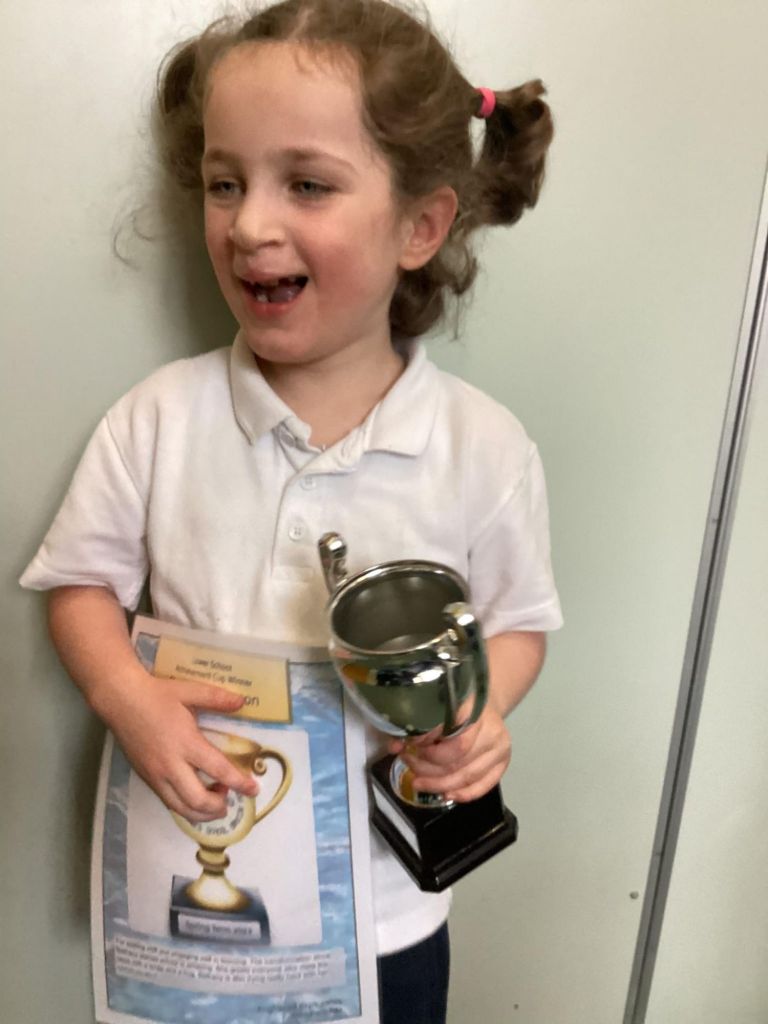I never imagined I would have a child who wouldn’t want to hold my hand. A child who would spin wildly at any form of restraint, be it a hand, a leash attached at the wrist, or a backpack with reins. All little children like to hold their parent’s hand, don’t they?
They don’t.
My eldest daughter, Lucy, has always liked to hold my hand and still does at times, although she is getting older now. When she was younger, we used a wrist leash to train her to stay close on walks when she wasn’t holding hands, but she was always willing to hold hands to cross the street or when walking by the road.
Bethany: my wild child, my independent and determined child; has always resisted restraint of any kind. She loves to run free. She sees no danger. Her wrists and hands are very sensitive to a firm grip. Holding her tighter sends her into sensory overload, which can be very challenging to deal with when out and about with all eyes watching. We tried both the wrist leash and the backpack reins for a while, but they just sent her into a spinning, flapping, screeching frenzy.
Bethany is autistic. The things that come naturally for neurotypical children don’t necessarily come naturally for her. We must creatively find what works for her and be extremely patient. For the most part we use what I call “the shepherding technique.” That means we hover close to her (running if she runs). If I see danger I put my arms around her from behind and hold her close. I point out dangers such as moving vehicles. Where possible, we go on walks in large groups, with aunts, uncles, and cousins as Bethany is more motivated to walk and happier to cooperate in a group. We encourage hand holding for crossing roads and sometimes she will do so.
On Saturday we went for a family walk. It was just the four of us out in the countryside away from roads and traffic. We were hunting for bluebells. We didn’t find any as it was still too early for our location, but it was a fine bright day and an enjoyable walk. Bethany chose to hold my hand as we walked uphill through an area wooded with tall pine trees. The hill was steep, and Bethany struggled to carry on, but she held my hand for support and I encouraged her that soon it would not be so steep.
We carried on through a gate into a clear area where last year’s bracken had died back. The sun shone brightly and the birds made their music above us. The path gradually became less steep and then levelled off as we carried on. Still, she held my hand. We found “Happy Valley,” as the locals like to call it, and strolled along for a little while before stopping to give the girls a drink and a snack.
Only a year ago, we walked up the same hill to search for bluebells. A year ago, Bethany found the hill too steep. She cried. She stopped. She refused to walk. She wouldn’t hold hands. In the end, daddy carried her. He was stressed. She was stressed. We were all stressed. We were too late for the best of the bluebells last year and the walk was anything but relaxing.
This year, Bethany walked for the whole time, except when daddy lifted her over a particularly squelchy area of mud. This year, nobody cried. This year, nobody was stressed. We found “Happy Valley,” which was beautifully green but completely bereft of bluebells. We enjoyed the bright blue sky, the bird song, and the sound of the stream gushing along the valley below. It was idyllic. And this year, my heart was singing, because this year, Bethany voluntarily held my hand!






